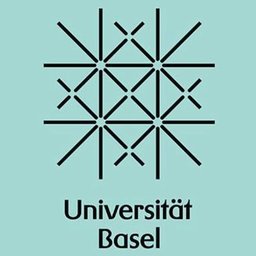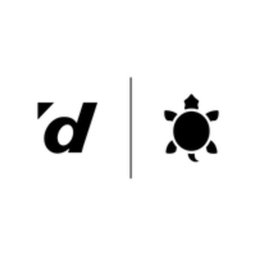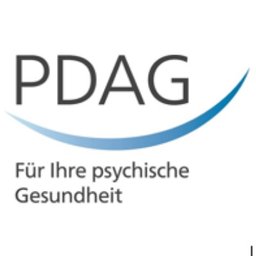Job Opportunities in Switzerland

September 18, 2024
Universität Basel
Basel
PhD position on novel mRNA nanotherapeutics against antibiotic-resistant pulmonary infections (P2405)
The Swiss Nanoscience Institute (SNI) at the University of Basel invites highly motivated scientists to apply for the SNI Ph D program in Nanoscience.
Your position
Antimicrobial resistance (AMR) is a global health concern. In recent decades, pan-resistant bacteria have emerged, rendering commonly available antibiotics ineffective. Consequently, many pivotal advancements in modern medicine are now under threat. As the development of new antimicrobials stagnates, there is an urgent need for alternative strategies to identify clinically effective treatments. In this project, we aim to develop a novel strategy for the treatment of antibiotic-resistant pulmonary infections via taking advantage of nanoparticle and m RNA technologies. m RNA technology has gained significant attention in various therapeutic areas, particularly in the development of vaccines for COVID-19. However, the potential of m RNA therapies against antimicrobial resistance has not yet been explored. With this project, we aim to bring the m RNA therapeutics beyond the current state-of-the-art.
Antimicrobial resistance (AMR) is a global health concern. In recent decades, pan-resistant bacteria have emerged, rendering commonly available antibiotics ineffective. Consequently, many pivotal advancements in modern medicine are now under threat. As the development of new antimicrobials stagnates, there is an urgent need for alternative strategies to identify clinically effective treatments. In this project, we aim to develop a novel strategy for the treatment of antibiotic-resistant pulmonary infections via taking advantage of nanoparticle and m RNA technologies. m RNA technology has gained significant attention in various therapeutic areas, particularly in the development of vaccines for COVID-19. However, the potential of m RNA therapies against antimicrobial resistance has not yet been explored. With this project, we aim to bring the m RNA therapeutics beyond the current state-of-the-art.
Your profile
We expect candidates to have a relevant background in biology, chemistry, nanosciences, or a similar field (Master's degree required). Prior experience in at least one of the followings is a must: microbiology (growth curves, inhibition assays,etc.), molecular biology (m RNA transfection, mammalian cell culture, etc.), nanoformulation development (lipid nanoparticles, polymer nanoparticles, liposomes, etc.). Over the course of the project, the candidate will acquire a wide range of skills in nanoformulation development, m RNA delivery, transfection, microbial and mammalian cell cultures
We expect candidates to have a relevant background in biology, chemistry, nanosciences, or a similar field (Master's degree required). Prior experience in at least one of the followings is a must: microbiology (growth curves, inhibition assays,etc.), molecular biology (m RNA transfection, mammalian cell culture, etc.), nanoformulation development (lipid nanoparticles, polymer nanoparticles, liposomes, etc.). Over the course of the project, the candidate will acquire a wide range of skills in nanoformulation development, m RNA delivery, transfection, microbial and mammalian cell cultures
We offer you
We are looking for a Ph D student for a joint research activity between Biointerfaces Group at the University of Applied Sciences & Arts Northwestern Switzerland (https://www.nanobiointerfaces.ch), Infection Biology Group at the University of Basel (https://biomedizin.unibas.ch/en/research/research-groups/khanna-gremmelmaier-lab/), and the Nanopharmaceutical and Regulatory Science Group at the University of Basel
(https://pharma.unibas.ch/de/research/research-groups/nanopharmaceutical-regulatory-science/).
The student will become a member of the Swiss Nanoscience Institute (SNI) Ph D school and will benefit from personal support, a strongly interdisciplinary social environment, training in soft skills offered by the Ph D program, and many internal SNI events.
We are looking for a Ph D student for a joint research activity between Biointerfaces Group at the University of Applied Sciences & Arts Northwestern Switzerland (https://www.nanobiointerfaces.ch), Infection Biology Group at the University of Basel (https://biomedizin.unibas.ch/en/research/research-groups/khanna-gremmelmaier-lab/), and the Nanopharmaceutical and Regulatory Science Group at the University of Basel
(https://pharma.unibas.ch/de/research/research-groups/nanopharmaceutical-regulatory-science/).
The student will become a member of the Swiss Nanoscience Institute (SNI) Ph D school and will benefit from personal support, a strongly interdisciplinary social environment, training in soft skills offered by the Ph D program, and many internal SNI events.
Application / Contact
More information and the online application platform can be found at www.phd.nanoscience.ch. For questions please contact the head of the SNI Ph D programme, Dr. Andreas Baumgartner (andreas.baumgartner@unibas.ch), or directly the project leaders. The application has to be completed before 31 December 2024. Please note that the decision to fill the vacancy can be taken at any time from now.
More information and the online application platform can be found at www.phd.nanoscience.ch. For questions please contact the head of the SNI Ph D programme, Dr. Andreas Baumgartner (andreas.baumgartner@unibas.ch), or directly the project leaders. The application has to be completed before 31 December 2024. Please note that the decision to fill the vacancy can be taken at any time from now.
We regret to inform you that this job opportunity is no longer available
Latest Job Opportunities
October 9, 2024
Gemeindeverwaltung Stäfa
Fachperson Offene Jugendarbeit (60 %)
Stäfa
PART TIME
View Details

October 9, 2024
Digitec Galaxus AG
Leiter Supply Chain Process Engineering
Zürich
PART TIME & OTHER
View DetailsSimilar Jobs

September 10, 2024
Putzfrauenagentur Kunz GmbH
Sachbearbeiter Mitarbeiterdisposition
Zürich
PART TIME & OTHER
View Details
September 12, 2024
ETH Zürich
Postdoctoral Research Position in Machine Learning for Chemical Reaction Prediction
Basel
OTHER
View Details
September 16, 2024
Psychiatrische Dienste Aargau
Sachbearbeiterin / Sachbearbeiter Disposition
Windisch
OTHER & PART TIME
View Details

August 19, 2024
Birsterminal AG
Sachbearbeiter/in Disposition Bahnverkehre 100%
Birsfelden
OTHER
View DetailsNew Jobs from This Company


October 4, 2024
Universität Basel
Starter scholarships of the Basel Graduate School of History
Basel
View Details
October 4, 2024
Universität Basel
Startstipendien der Basel Graduate School of History
Basel
View Details
October 3, 2024
Universität Basel
Two Start-up Grants of the Doctoral Program in Literary Studies (30,000 Swiss francs each)
Basel
View Details
October 3, 2024
Universität Basel
1 "bourse de démarrage" du programme doctoral des Sciences de l'Antiquité de l'Université de Bâle
Basel
View Details